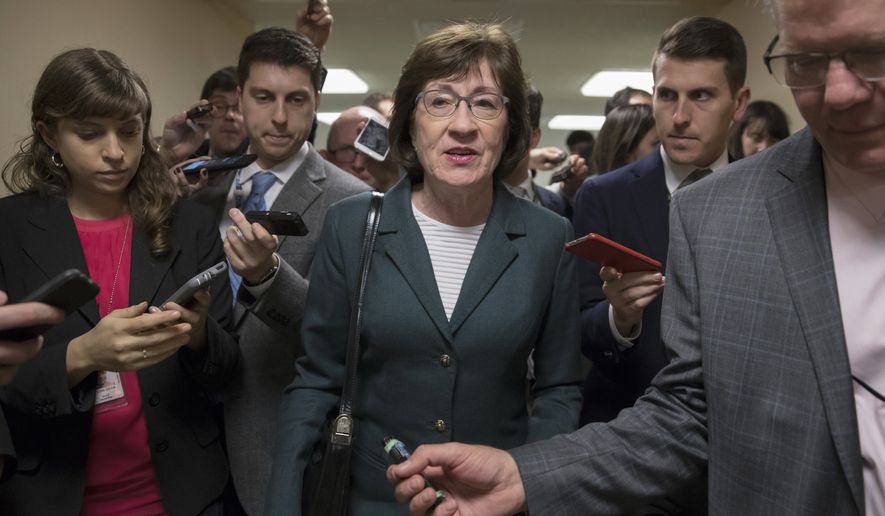
The senators who will most likely decide Judge Brett Kavanaugh[1]’s fate were studiously noncommittal Monday, promising a thorough and fair vetting before they say whether they’ll support his nomination to the Supreme Court[2].
Only a few Republicans and a handful of Democrats are likely in play in the closely divided Senate.
And depending on absences, a single Republican defection could sink the pick — while the support of one or two Democrats could guarantee Judge Kavanaugh[3] will be on the high court[4] by the time the next term begins in October.
Sen. Susan Collins, the Republican that Democrats are most likely to sway, said Judge Kavanaugh[5] brough “impressive credentials and extensive experience.”
But she wouldn’t go further.
“I will conduct a careful, thorough vetting of the President’s nominee to the Supreme Court[6], as I have done with the five previous Supreme Court[7] Justices whom I have considered,” the Maine senator said.
Democrats and pro-choice activists have vowed massive pressure on Ms. Collins and Sen. Lisa Murkowski, Alaska Republican, saying they will be to blame if the court[8] eventually overturns the 1973 Roe v. Wade decision that established a national right to abortion.
For their part Republicans say there are a handful of Democrats up for election this year in states President Trump won easily in 2016 — and they are about to feel intense pressure to back Mr. Trump on this vote.
They, like the GOP swing votes, refused to commit....
“I have no doubt that many members of Congress and outside groups will announce how they stand on the nominee before doing their due diligence and instead just take a partisan stance — but that isn’t how I work,” said Sen. Heidi Heitkamp, North Dakota Democrat.Likewise Sen. Joe Manchin, West Virginia Democrat, promised to give Judge Kavanaugh[9] an honest look-see. But unlike Democratic leaders, who said the decision comes down to abortion, Mr. Manchin said he’s particularly interested in finding a justice who will protect the promises of Obamacare.“The Supreme Court[10] will ultimately decide if nearly 800,000 West Virginians with pre-existing conditions will lose their healthcare. This decision will directly impact almost 40% of my state, so I’m very interested in his position on protecting West Virginians with pre-existing conditions,” he said.
